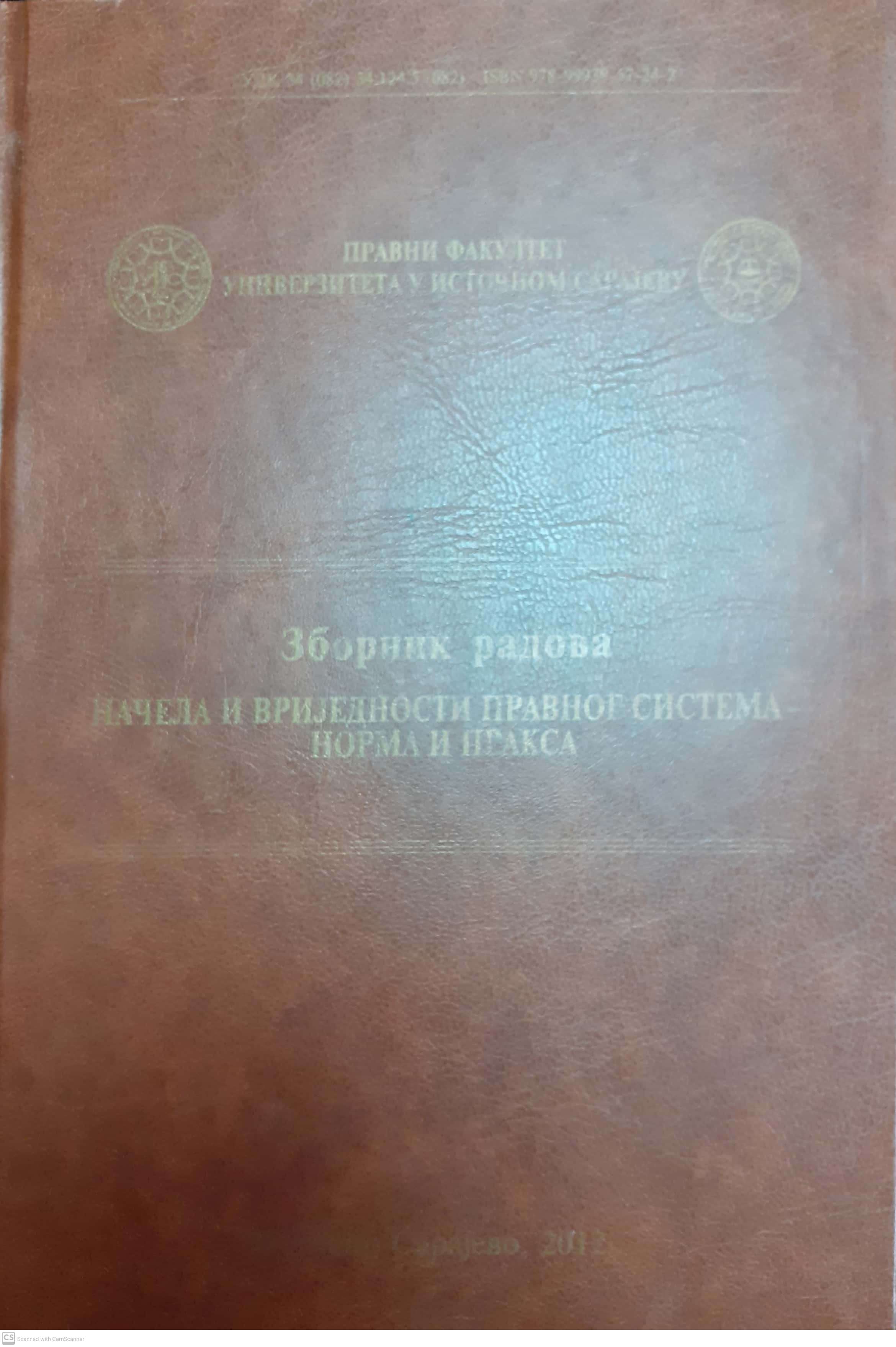Кажњавање малолетника у савременом кривичном праву
Punishing Juveniles in Modern Criminal Law
Author(s): Dragan Jovašević
Subject(s): Criminal Law, Penology, Penal Policy
Published by: Правни факултет Универзитета у Источном Сарајеву
Keywords: Code;Juvenile;Crime;Penalty;Liability;Prison;
Summary/Abstract: All material (corporeal), processing and executive provisions related to criminal law in Republic of Serbia about juveniles are in the new Law about juvenile committers and criminal law protection of juveniles from 2006. January 1st (LAJCCA), conjoint in one place. That is how the juvenile criminal law has been created. It is characterized by: 1) principally, inquest of the juvenile injurers guilt is excluded, 2) among criminal sanctions towards juvenile injurers the priority belongs to the educable provisions compared to the punishment that presents the exception expressed in juvenile jail implementation. By the way of exception, with the juvenile jail can be punished only the older juvenile if he committed a crime for which the proposed punishment is over five years; if he is sufficiently mentally mature so that he can understand importance of that crime and he can control his acts; and when the consequences of the committed crime are that severe, and the extent of guilt that high that the application of educative provisions wouldn’t be justified, 3) in the criminal proceeding towards juveniles, prosecution and juridical apparatus have wide authority in terms of starting, processing and terminating the proceeding. Those authorities consist of discrete rights to withdraw prosecution regardless of what the committed crime is, if it is considered that it would be useful in terms of education and reeducation of the juvenile delinquent. The principle of utility has the priority over the principle of objectiveness. The court mandates consist of not only a wide scale of optional means and provisions, but of possibility to replace already delivered verdict with some other more convenient provision, if it is required by the specific situation and 4) in juridical system of the Republic of Serbia there are special jurisdictional bodies for struggle against juvenile criminality: special departments for juvenile delinquency in internal affairs agencies, a prosecuting attorney for juveniles and special juvenile council i.e. the juvenile court that supervises the whole criminal proceeding against any juvenile delinquent. The new juvenile criminal law anticipates two basic types of the juvenile criminal sanctions. These are:1) the educational measures and 2) the juvenile prison. They are legally anticipated measures of the social reaction towards the juvenile committers of the crime activities that are sentenced the legally determined organs in aim to protect the society from the criminality trough the education, reeducation and proper development of the juvenile. In this paper the author has analysed application of juvenile prison against juvenile perpetrator of crimes in new juvenile criminal law of Republic of Serbia and comparative law from theoretical, practical and comparative law aspects.
- Page Range: 633-661
- Page Count: 29
- Publication Year: 2011
- Language: Serbian
- Content File-PDF

